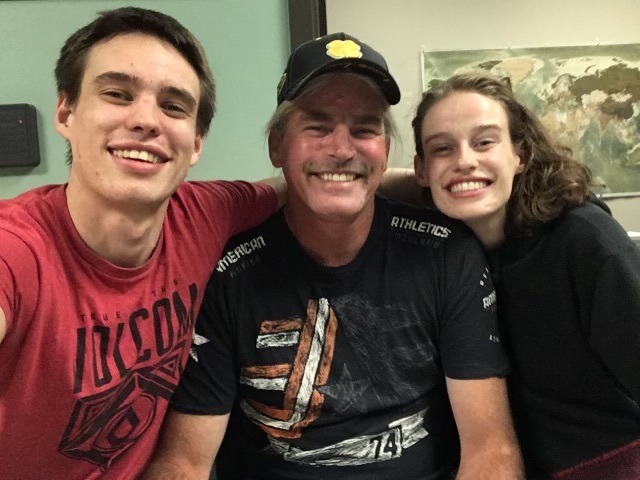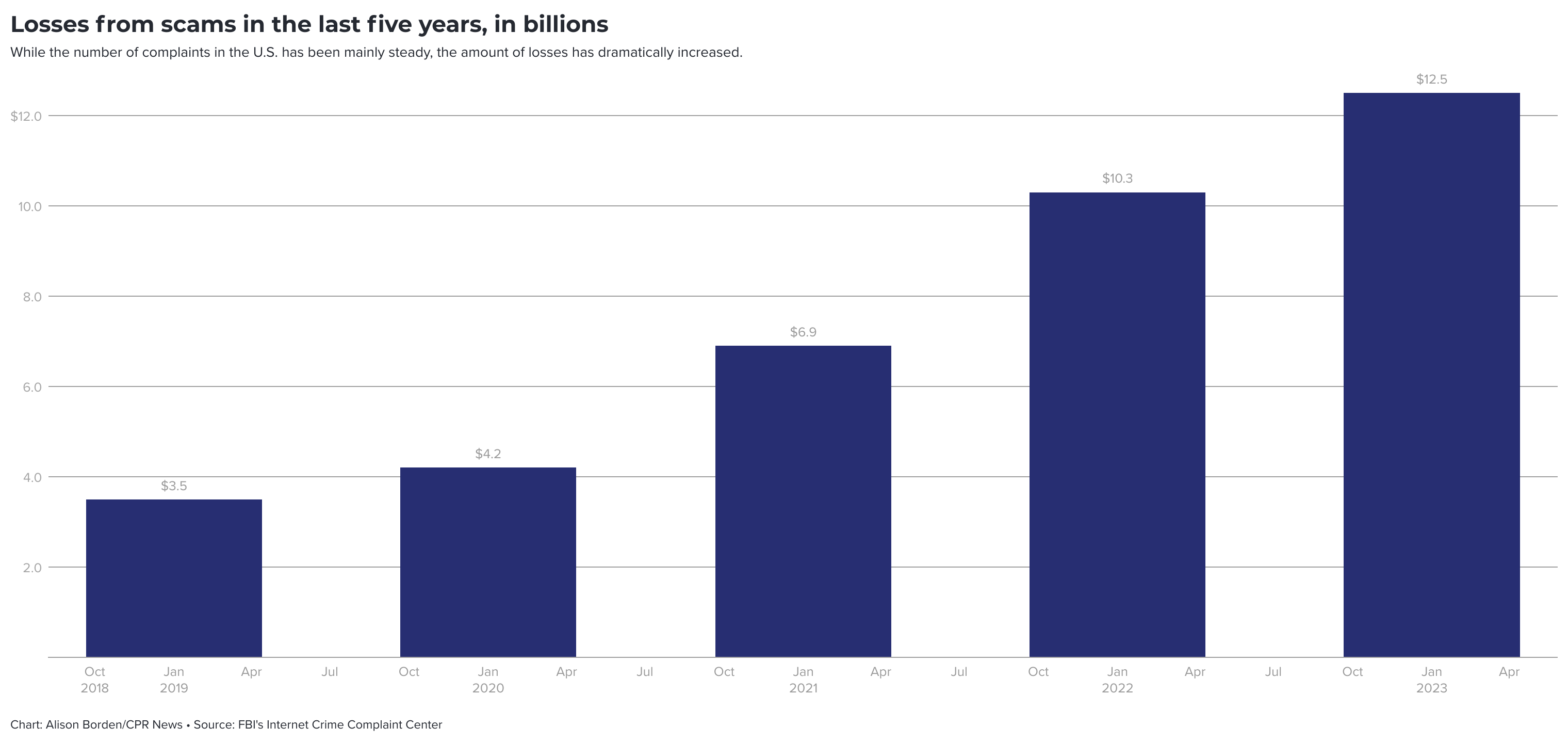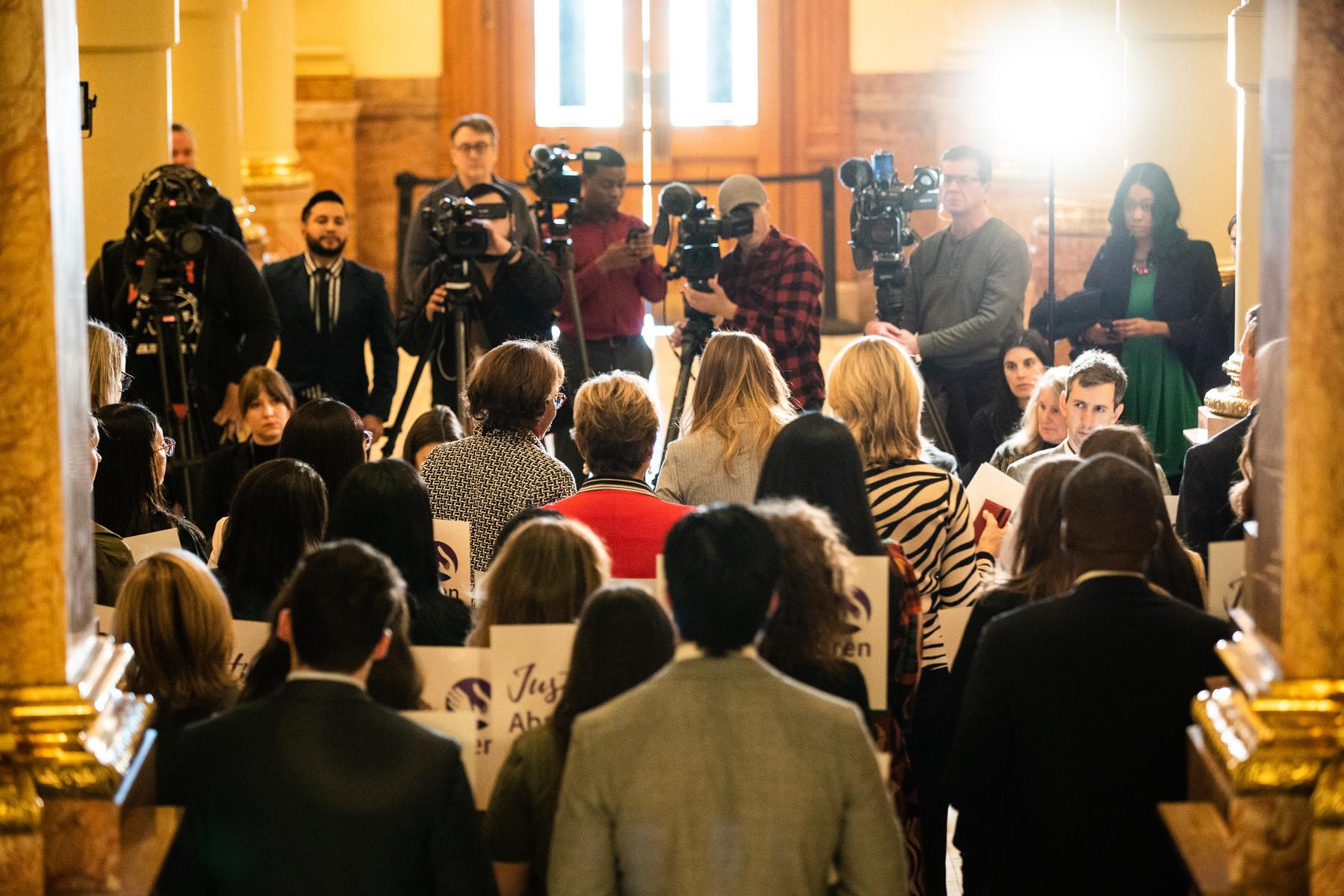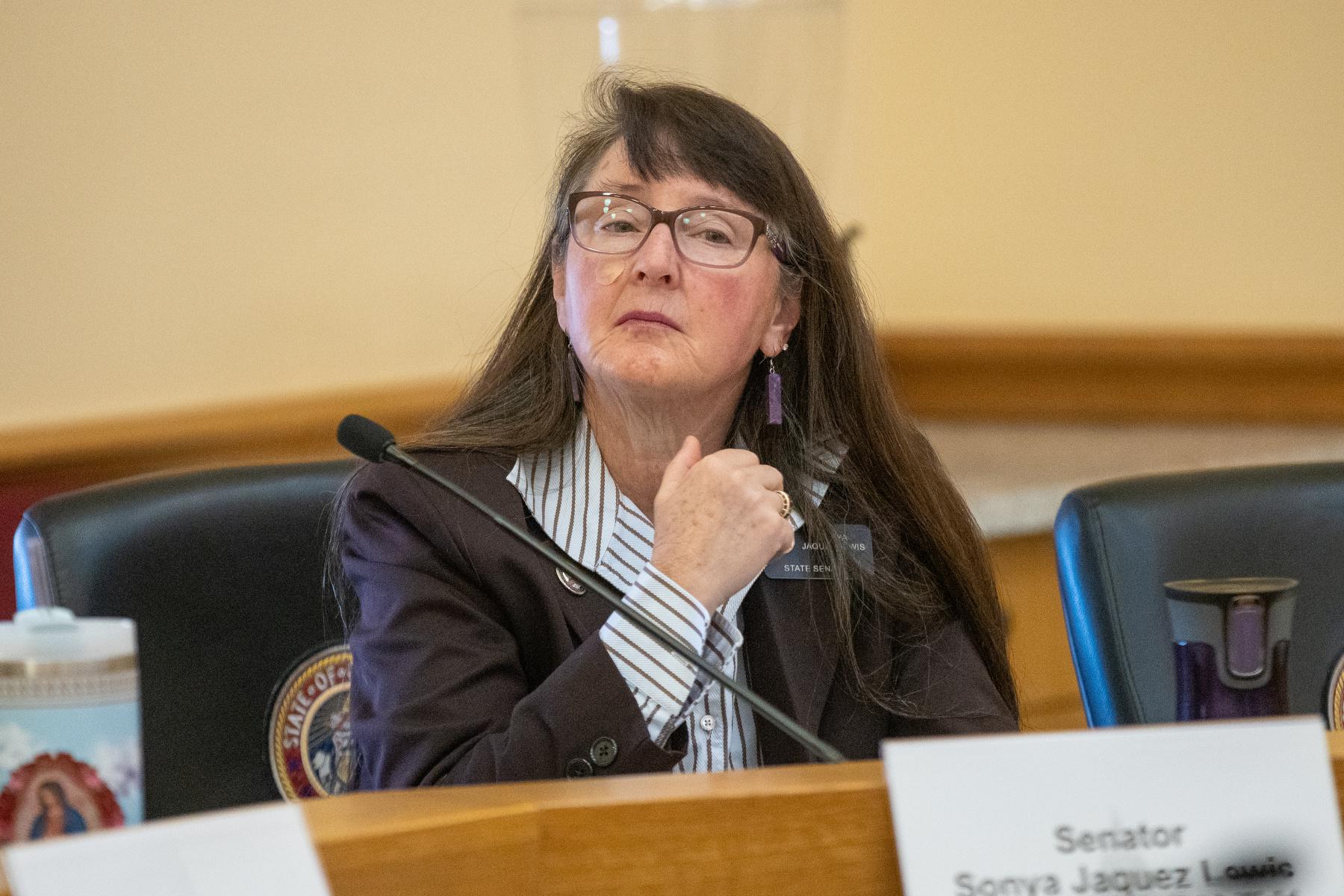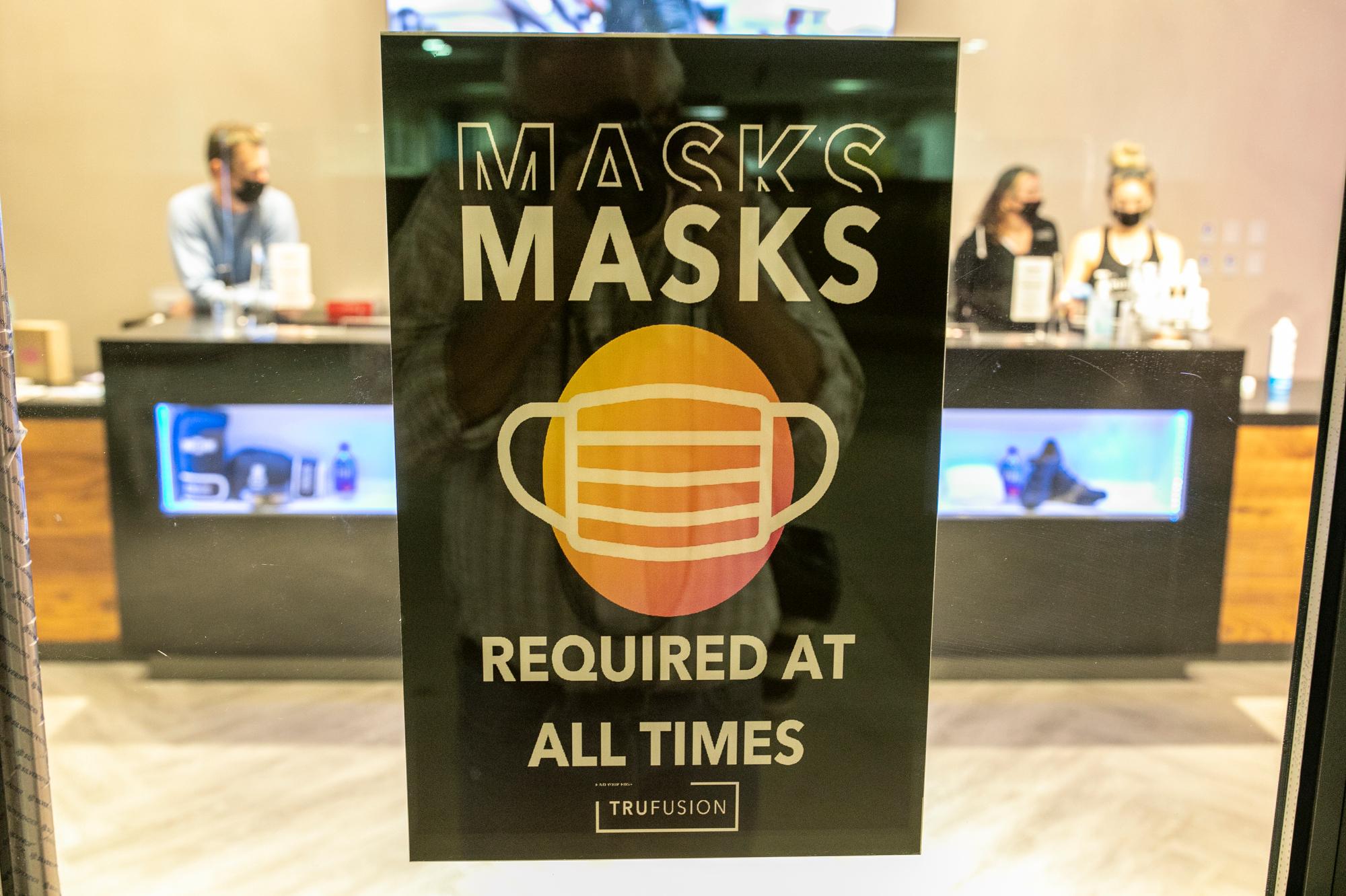
Updated 12:56 p.m.
With the holidays ahead and the super-infectious delta variant looming, Denver-area public health officials looked at the crisis-level numbers of hospitalizations and decided to do what the governor has not: reinstate a public indoor mask mandate, despite residents’ outcries against it.
Within a few minutes of each other, first Jefferson County’s board of health, then Tri-County’s, voted Monday evening to require masks indoors starting Wednesday.
On Tuesday, Denver announced it would also reinstitute a mask mandate requiring all residents to wear a face covering indoors starting Wednesday and lasting until at least Jan. 3, 2022.
Boulder and Larimer counties enacted mask requirements in response to high levels of transmission and endangered hospital capacity earlier this fall.
The local mandates come after Gov. Jared Polis, a Democrat, has refused to implement a statewide mask order, despite growing calls for weeks to do so. Hospitals, frontline providers and local public health officials, including from Jeffco just last week, have urged him to act. It also comes as COVID-19 hospitalizations hit their highest levels in nearly a year and are on pace to eclipse the pandemic peak soon.
Research has shown masks help prevent the spread of COVID-19 and are a key element of an effective multi-layered strategy.
The Jeffco vote was 4-1; the tally in Tri-County, which includes Arapahoe and Adams counties, was 5-1. Douglas County pulled out of the agency earlier this year, and the coming public health order won’t include it.
Nearly two-thirds of the state’s population are fully vaccinated with two doses, and many getting booster shots. But the pandemic is still raging among the unvaccinated: 83 percent of those currently hospitalized with the virus are unvaccinated.
No signs of surge slowing
Updated numbers from the state health department on Monday gave no signs of any break from the latest surge.
COVID-19 hospitalizations hit 1,565, up 46 from the day before and the most since hitting that same number Dec. 9. The total figure is now less than 300 hospitalizations away from the pandemic peak of 1,847 last Dec. 1. Colorado gained roughly that number of coronavirus hospitalizations in the last two and a half weeks.
Mask orders have proven valuable in working to turn the corner of the emergency, a couple of public health officials told the Jeffco board. But they’ve been controversial with a vocal part of the community. Jeffco’s vote was preceded by a protest in front of the county’s offices.
Larimer County adopted a mask order when its hospitals got overwhelmed with COVID-19 cases along with a surge on other medical needs. It’s had an impact, Jefferson County public health director Dawn Comstock told Jeffco’s board.
“Hospital admissions are now down approximately 33 percent since the beginning of the mask mandate in Larimer County,” she said.
“Public health orders in Boulder and Larimer counties have led to increased mask-wearing and kept hospitalizations lower,” said Lexi Nolen, Boulder County Public Health's deputy director. “We see that our towns on county borders are experiencing higher case rates.”
The head of the Denver Department of Public Health and Environment spoke to Jeffco’s board about steps to fight the virus Denver has taken in recent weeks and hinted, without saying directly, that the city was preparing its own order.
“I will say that when we did have a face-covering mandate in place in Denver, we had a high level of compliance,” said Bob McDonald. “I'm hoping, if we move in that direction, to help our hospital partners out, that we'll still have a high level of compliance. I believe people are going to do the right thing.”
Often heated, emotional debate about masks
Before the votes came, many residents spoke out against them, citing a number of worries, from the impact on businesses to the difficulty of enforcement to concerns about government overreach. The discussion mirrored the often heated and emotional civic debate that’s swirled for nearly two years of the pandemic.
How can businesses expect young employees to enforce a mask mandate, Jefferson County business owner Parker Brown asked, worried about turning customers away. “It’s gonna kill business.”
Fitness club owners and employees pushed for some flexibility, citing a drop in customers because of earlier mask measures and questioning the rationale for the decision.
“To be lumped in with bars and restaurants is incredibly disappointing,” said Jason Jost of Littleton.
“What happens when a customer snaps,” if they don’t want to comply, asked Hilary Taylor, a mom from Evergreen with a daughter who works in a public-facing service job.
Others expressed doubts about the science behind masks, accusing local public health officials of cherry picking data. A few decried what they see as heavy-handed government interference in business and individual lives. Several speakers heralded approaches that haven’t been endorsed by federal health agencies: hydroxychloroquine, ivermectin, vitamin D.
Josh Schlossberg, with the group Colorado COVID Watch, spoke in favor, saying hospitals are filling up, in part because public health authorities hadn’t done enough to stem the tide.
“Jeffco has not done what’s right. It’s barely done anything at all,” he said, urging the board to approve the proposal before the numbers get worse. “Otherwise why do we have a board of health,” he said.
'Our health care system is in crisis'
Ultimately, the dire shape of the state’s hospitals proved convincing.
“Our health care system is in crisis,'' said Jeffco board member Lane Drager. “We have to look at preventing the spread.”
Officials on Tri-County’s echoed the concern.
“We're all eager for the COVID pandemic to be over. Unfortunately, the COVID virus is still an enemy that we need to defeat and I've been concerned that our hospitals are overflowing,” said Kaia Gallagher, a Tri-County health board member representing Arapahoe County, after the board voted on the mask requirement.
She said a rationing of care is already happening, noting that she has a terminally ill neighbor who waited five hours for an ambulance that never arrived, only for a friend to drive her to the hospital.
“People are already suffering in terms of being able to get access to the hospital care that they need,” she said.
“We recognize that our tools are not perfect, masks do not provide perfect protection, but from my opinion, we need to use all of the protection tools that we have,” Gallagher said.
She noted the county’s order will have a time limit and allows for some exemptions to businesses.
Jeffco's order will remain while the county is in substantial or high transmission. Tri-County’s order will stay in effect through Jan. 2 and until staffed ICU bed availability is above 10 percent. Currently, staffed ICU bed availability in the north-central region that covers Adams and Arapahoe counties is 5.8 percent, Tri-County said.
Hospitals feeling the crunch
The coronavirus pandemic is roaring on in Colorado, with elevated levels of transmission, cases, hospitalizations and deaths, both in the state and in virtually every county in the state.
The crunch is being most acutely felt in staffing and bed capacity. Forty-six percent of hospitals reported they anticipated a staffing shortage in the next week; 41 percent anticipated ICU bed shortages in the next week, according to the state’s COVID-19 dashboard. Just 81 of the state’s 1,508 total ICU beds were available on Monday. The 7-day average of ICU beds in use is 94 percent.
“Hospital volumes were very high before this whole delta wave started. And now we're really arriving at this crisis,” said Dr. Adit Ginde, an emergency doctor at University Hospital on the CU Anschutz campus in Aurora. “The challenge is that we don't believe that we're at the peak of this wave of the pandemic.”
In the last week of October and the first week of November, more than 200 people died each week in consecutive weeks for the first time since the end of last year.
Transmission remains high, with the 7-day positivity rate at 9.26 percent, well above the 5 percent rate that signals trouble. Dr. Eric Poeschla worries the numbers will only grow over the holidays.
“Everyone's not only getting together, but the sort of mixing nationwide and this vast shuffling thing we do every Thanksgiving and Christmas (increases the likelihood of more spread of the virus),” said Poeschla, chief of infectious diseases at the University of Colorado School of Medicine, “And so there's almost certainly going to be a further jump.”
- Nov. 19: 1 in 38 unvaccinated Coloradans are infected with COVID-19, Polis says
- Nov. 17: Colorado approaches new pandemic peak as COVID hospitalizations top 1,500 and only 75 ICU beds remain available
- Nov. 10: Colorado could exceed hospital capacity in December as Polis pushes boosters, but no mask mandate in sight
- Nov. 8: With Colorado hospitals full and short-staffed, some health care providers may need to work in roles they aren’t certified for
- Nov. 3: With Colorado hospitals overwhelmed, patients can now be transferred anywhere in the state
- Nov. 1: New Colorado health order allows hospitals to refuse patients as COVID cases and hospitalizations rise
- Oct. 25: Colorado COVID-19 hospitalizations keep rising, with unvaccinated patients filling ICUs and acute care wards
- Oct. 22: ‘No place for the patient to go ’ — As a new COVID wave hits, hospitals struggle to find open beds
- Oct. 12: Hospitalizations and deaths climb as Colorado’s fifth COVID wave keeps rising

